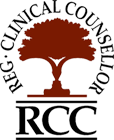Retirement is often viewed as the goal in one’s career journey—freedom, relaxation, and the ability to spend time on what matters most. However, the transition from the daily grind to retirement can present a unique set of challenges that are often overlooked in traditional retirement planning. While financial stability is the cornerstone of a successful retirement, mental and emotional preparedness are just as important for ensuring a fulfilling and healthy life after work.
Let’s explore how you can approach retirement planning with a focus on your overall well-being. Yes, money is important, but you also must set yourself up for a mentally healthy retirement.
1. The Mental Health Impact of Retirement
For many, work provides more than just a paycheck. It offers purpose, structure, social connection, and a sense of identity. When these aspects of life are stripped away, it can lead to feelings of isolation, depression, and anxiety. According to studies, the transition to retirement is often met with emotional challenges, such as:
- Loss of Identity: For years, your identity might have been closely tied to your career. Without that role, some retirees may struggle to redefine themselves. Who am I now?
- Loneliness: Work often provides daily social interaction. Once retired, individuals can experience loneliness, particularly if they don’t have a strong social network outside of work.
- Anxiety and Uncertainty: Even those with sufficient savings can face uncertainty about how they’ll spend their days and whether they’ll feel fulfilled after retiring.
Recognizing these emotional and mental health challenges can help retirees prepare a ‘whole life’ approach for this significant life phase.
For personalized support, consider exploring counselling services.
2. Build a Routine that Supports Mental Well-Being
One of the first steps to a mentally healthy retirement is maintaining structure and purpose. While the days may seem endlessly free, they can also become overwhelming without a plan.
- Establish a Daily Routine: While you may no longer have a 9-to-5 job, creating a daily routine that includes activities you enjoy—whether it’s exercise, hobbies, or even volunteering—can help create structure.
- Find Purpose: Many retirees struggle with a lack of purpose once they stop working. To prevent feelings of aimlessness, consider activities that give you a sense of meaning, like mentoring, working part-time, learning new skills, or volunteering.
Career coaching can help you explore new pathways.
3. Stay Socially Connected
Loneliness is a concern for many retirees. Without regular interaction with coworkers or a work-based social network, isolation can set in. To combat this:
- Maintain Existing Relationships: Stay in touch with friends, family, and colleagues through phone calls, video chats, or in-person meetups.
- Join Groups or Clubs: Consider joining groups or clubs that align with your interests. Social networks based around shared hobbies or causes (book clubs, hiking groups, etc.) can provide valuable connections.
- Volunteer: Volunteering not only keeps you socially engaged but can also give you a sense of accomplishment. Whether it’s at a local charity, hospital, or community center, volunteering can fill your time with meaningful activities.
Volunteering can also be a valuable part of self-help initiatives.
4. Prioritize Physical Health for Mental Health
Physical activity and mental well-being go hand in hand. Regular exercise has been proven to reduce anxiety, depression, and stress while boosting overall happiness. As you enter retirement, prioritize staying active.
- Exercise Regularly: Aim for activities that you enjoy and that you can realistically do on a regular basis, such as walking, swimming, or yoga.
- Mindfulness and Relaxation: Incorporating practices like mindfulness, meditation, or deep breathing exercises can reduce stress and improve your mental outlook.
Physical health provides a solid foundation for emotional well-being, and it’s important to make it a central part of your retirement plan.
If you are considering broader lifestyle changes, life coaching services can guide you in building holistic wellness routines.
5. Prepare for the Emotional Transition
The mental and emotional shift from a busy work life to a slower-paced retirement can be jarring, and it’s important to plan for it.
- Start Transitioning Early: If you’re nearing retirement, start easing into it before you completely step away from the workforce. Consider transitioning to part-time work or take on freelance projects to gradually reduce your work hours and ease into a new routine.
- Seek Professional Help if Needed: It’s okay to seek therapy/counseling if you’re struggling with retirement. Many people do. A therapist can help you process any feelings of loss or anxiety and guide you through this major life change.
Explore coaching services in Vancouver for personalized strategies.
6. Set New Goals and Challenges
Retirement doesn’t have to mean the end of your personal growth. In fact, it can be an opportunity to challenge yourself in new ways. Set goals for personal growth, like learning a new language, taking a course, or exploring new hobbies. These challenges can provide excitement and motivation, boosting your mental health.
To navigate mid-life transitions, consider mid-life coaching in Vancouver.
7. Create Financial Peace of Mind
Although we’re focusing on mental health, financial health is undeniably a part of the equation. Worrying about running out of money or not having enough for your desired lifestyle can be a significant source of anxiety.
- Work with a Financial Planner: Having clarity about your finances can alleviate much of the stress associated with retirement.
- Simplify Your Finances: Keep your financial life simple by tracking expenses, paying off debts, and avoiding unnecessary stressors related to money.
Professional support like workplace services can provide practical financial advice and transition coaching.
8. Embrace a Positive Mindset about Aging
Finally, one of the most powerful things you can do for your mental health as you retire is to cultivate a positive attitude toward aging. Retirement represents a new chapter, full of opportunities to explore passions, deepen relationships, and take care of your mental and physical health.
While aging comes with challenges, it can also be a time of great freedom, joy, and personal fulfillment. By embracing this shift with an open mind and a focus on growth, you’ll be better equipped to navigate the emotional complexities of retirement.
If conflicts arise during this adjustment period, conflict resolution services are available to help.
Conclusion: Plan for Your Mind, Not Just Your Wallet
Retirement is a big step, but it’s not just about finances—it’s about your whole-life: mental, emotional, physical, relational and spiritual well-being. Taking time to plan fully will help you enjoy the next chapter of your life with confidence and joy. The key is to approach retirement holistically so that your retirement is not just about having enough money, but also about having a fulfilling and enriching life.
For comprehensive support on this journey, explore Claire Sutton’s counselling and coaching services to help you achieve a balanced and joyful retirement.






